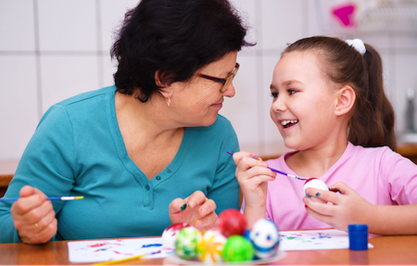 It’s been nearly 20 years since a landmark study found that by age 3, children from low-income families hear 30 million fewer words than more affluent peers, putting them at an educational disadvantage. Now, a growing body of research is showing that more language is not enough to overcome deficits. The quality of the communication between children and their caregivers is of much greater importance than the number of words a child hears. http://nyti.ms/1qFikJu “It’s not just about shoving words in,” said Kathryn Hirsh-Pasek, a professor of psychology at Temple University. “It’s about having these fluid conversations around shared rituals and objects, like pretending to have morning coffee together or using the banana as a phone. That is the stuff from which language is made.” Her study showed that quality of communication resulted in 27 percent more expressive communication by children over the course of a year. Experts recommend that adults keep kids engaged in conversation by asking questions, making comments, and inviting children to share their ideas. Using encouraging words is also important (researchers found that higher-income families provided their children with far more words of praise compared to children from low-income families). To help develop more advanced literacy skills, point out words that rhyme or start with the same sound. For more tips visit. We want to hear: What tips do you have for teaching language skills to children, and do any of these tips apply to other situations? Join the conversation and click "comments" on our Community of Practice Forum.
0 Comments
Your comment will be posted after it is approved.
Leave a Reply. |
Archives
July 2024
Categories
All
|
|
Glaser & Associates, Inc.
Executive Offices 1740 Craigmont Avenue, Eugene, OR 97405 541-343-7575 | 800-980-0321 [email protected] |
© 2019 Glaser & Associates. All Rights Reserved.


 RSS Feed
RSS Feed